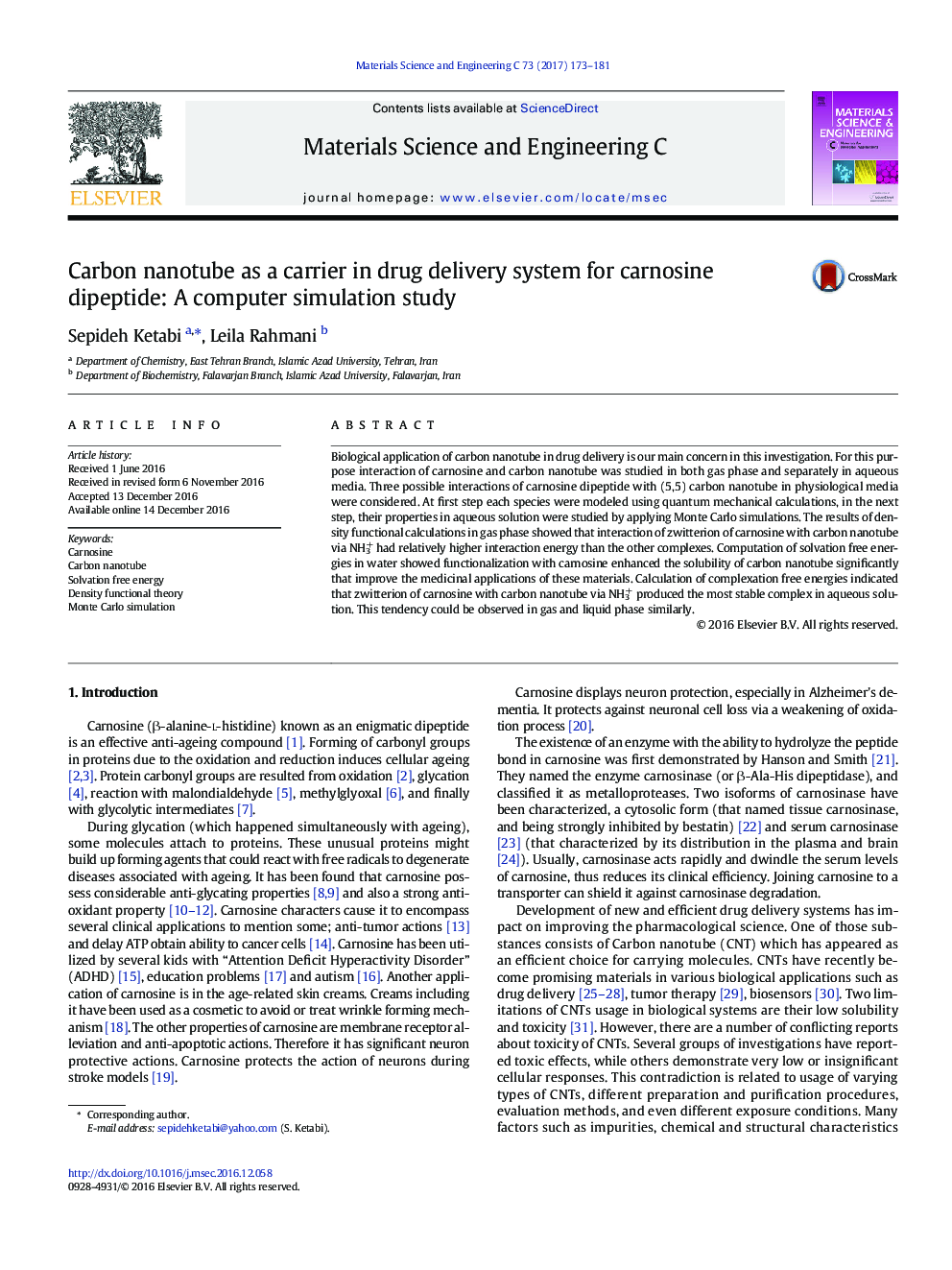| Article ID | Journal | Published Year | Pages | File Type |
|---|---|---|---|---|
| 5434918 | Materials Science and Engineering: C | 2017 | 9 Pages |
â¢Carnosine dipeptide (an anti-ageing compound and neuron protection in relation to Alzheimer's dementia) can be stabilized against degradation by binding to Carbon nanotube as a transporter.â¢Functionalization with carnosine increases the solubility of carbon nanotube considerably and so such systems hold great potential in the field of nanomedicine.â¢Complexation free energies confirm the interaction of carnosine dipeptide with carbon nanotube in aqueous solution.â¢Carnosine zwitter ion via NH3+ have the most interaction energy with carbon nanotube.
Biological application of carbon nanotube in drug delivery is our main concern in this investigation. For this purpose interaction of carnosine and carbon nanotube was studied in both gas phase and separately in aqueous media. Three possible interactions of carnosine dipeptide with (5,5) carbon nanotube in physiological media were considered. At first step each species were modeled using quantum mechanical calculations, in the next step, their properties in aqueous solution were studied by applying Monte Carlo simulations. The results of density functional calculations in gas phase showed that interaction of zwitterion of carnosine with carbon nanotube via NH3+ had relatively higher interaction energy than the other complexes. Computation of solvation free energies in water showed functionalization with carnosine enhanced the solubility of carbon nanotube significantly that improve the medicinal applications of these materials. Calculation of complexation free energies indicated that zwitterion of carnosine with carbon nanotube via NH3+ produced the most stable complex in aqueous solution. This tendency could be observed in gas and liquid phase similarly.
Graphical abstractDownload high-res image (127KB)Download full-size image
